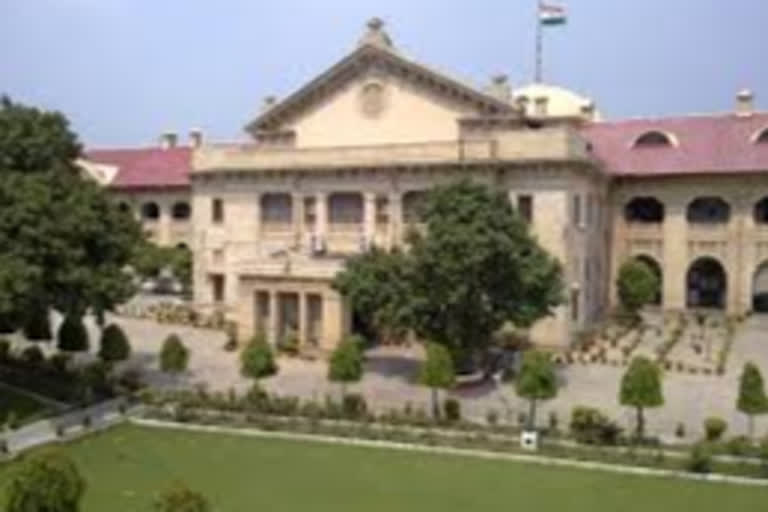Uttar Pradesh:The Allahabad High Court on Tuesday termed section 125 of the Code of Criminal Procedure as a "tool to realise gender justice" and "one of the most secular laws ever made".
Justice Pradeep Kumar Srivastav, who was hearing a plea filed by a husband challenging the grant of maintenance to his wife after divorce, remarked, "this (Section 125 of CrPC) law is not community-centric or religion centric and perhaps, one of the most secular enactment ever made in the country, " in his judgement.
The issue raised in the petition was whether the application under section 125 Cr.P.C. of a divorcee is maintainable.
Referring to various judgments of the Supreme Court, the court discussed the scope of the right of a Muslim divorced wife to claim maintenance.
It noted that the Supreme Court has interpreted the provisions of the Act and section 125 of the Code in such a way so as to give recognition to the right of divorced Muslim wife to claim maintenance under section 125 even for the period beyond iddat and for the whole life unless she is disqualified for the reasons such as entering into marriage with someone else.
The court observed, "Section 125 of the Criminal Procedure Code has been enacted with a specific purpose to protect women and children and to prevent vagrancy and destitution among them. This law is not community-centric or religion centric and perhaps, one of the most secular enactment ever made in the country. It is an instrument of social justice and aims to render justice on the basis of equality to wife, in particular, may be divorced including a divorced Muslim wife."
The court further observed that the provision in the Criminal Procedure Code is a tool to realise the constitutional promise to realize gender justice. It said:
"Gender justice is a constitutional promise and the provision of maintenance provided under section 125 of the Code is one of the tools to translate the constitutional promise into social reality. Moreover, Article 21 of the Constitution guarantees every person a right to live with dignity and dignified life is not possible unless a fair and reasonable provision is made by the husband towards the maintenance of his divorced wife. Therefore, while interpreting and applying this beneficial legislation, the Constitutional vision of equality, liberty and justice, more particularly social justice to the women and marginalized sections of society, must be present when the courts are dealing with an application of destitute wife or helpless child and aged and infirm parents."
It added, "Social justice adjudication or social context adjudication requires the application of equality jurisprudence where the parties to a litigation are unequally situated in terms of socio-economic structure and dilution of the technical procedure often followed in an adversarial system."
